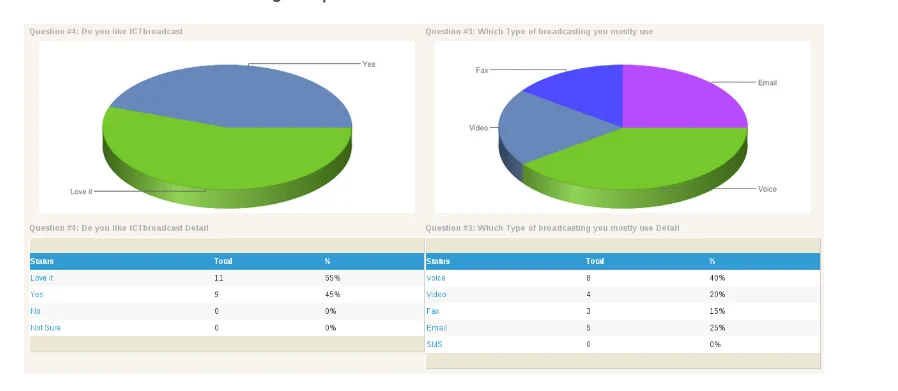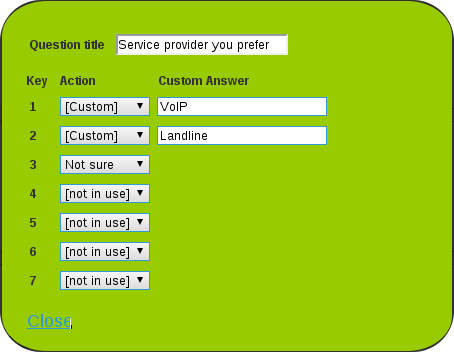In today’s data-centric world, businesses from various sectors depend on precise and timely information to guide their decisions. Surveys are among the most effective tools for collecting this essential data. Although online surveys have become increasingly popular, phone surveys remain crucial for data gathering. However, conducting phone surveys manually can be labor-intensive and resource-heavy. This underscores the significance of phone survey software. In the following article, we will examine how phone survey software can enhance your data collection processes and offer valuable insights into your target audience.
Understanding Phone Survey Software
Phone survey software consists of specialized tools and platforms engineered to automate telephone surveys. These solutions utilize advanced technologies like interactive voice response (IVR) systems and computer-assisted telephone interviewing (CATI) methods to streamline the data collection process. By employing phone survey software, organizations can efficiently administer surveys, gather responses, and analyze data with improved accuracy and effectiveness.

Benefits of Phone Survey Software:
Enhanced Efficiency:
Phone survey software greatly boosts efficiency by automating many aspects of the survey process. It removes the need for manual dialing, reduces human error, and allows for simultaneous data collection from multiple participants. Features such as IVR enable respondents to navigate questions using touch-tone keypads, eliminating the need for a live interviewer. This automation saves time and resources and allows organizations to conduct surveys on a larger and more comprehensive scale.

Improved Response Rates
Phone survey software helps organizations broaden their reach and achieve higher response rates. It supports both random and targeted sampling, ensuring a representative sample of the population. By utilizing phone numbers from diverse sources and demographic data, organizations can specifically target certain groups or regions. Automated reminders and follow-up calls further enhance response rates, leading to more robust and reliable data.
Instant Data Collection
Phone survey software enables real-time data collection, providing organizations with immediate access to survey results for prompt analysis. As respondents complete surveys, the software quickly compiles and organizes the data, making it available for immediate reporting. This real-time capability allows organizations to quickly identify trends, patterns, and emerging insights, enabling decision-makers to respond rapidly to changing market conditions or customer preferences.
Improved Data Accuracy
Manual data entry often introduces human error, potentially affecting the accuracy of collected data. Phone survey software reduces these errors by automating data collection. Responses are recorded directly from respondents, minimizing transcription mistakes. Advanced algorithms and validation rules further ensure data integrity. By reducing errors, organizations can rely on the accuracy of their survey results, leading to more trustworthy insights and better-informed decision-making.
Key Features of Phone Survey Software:
IVR and CATI Capabilities
Phone survey software frequently includes IVR (Interactive Voice Response) and CATI (Computer-Assisted Telephone Interviewing) functionalities. IVR enables respondents to interact with the survey using touch-tone keypads or voice commands, providing a self-service survey experience. In contrast, CATI allows live interviewers to conduct surveys, handle complex questionnaires, and explore respondents’ answers in greater depth. These features offer flexibility in survey design and administration, accommodating diverse research goals and respondent preferences.
Survey Scripting and Design
Phone survey software offers user-friendly interfaces for creating and customizing survey scripts. Administrators can design questionnaires with various question types, branching logic, and skip patterns. The software supports multimedia elements like audio prompts and recordings to enhance the survey experience. This flexibility in scripting and design allows organizations to develop engaging and tailored surveys that meet their specific research objectives.
Data Management and Reporting
Effective data management is a key feature of phone survey software. It automatically collects and consolidates survey responses into a centralized database, simplifying data retrieval, filtering, and sorting. Reporting tools and intuitive dashboards provide visual representations of survey results, facilitating data interpretation. Many phone survey solutions integrate seamlessly with data analysis tools, enabling smooth data transfer for comprehensive analysis, which enhances overall data management efficiency.
Integration and Scalability
Phone survey software integrates smoothly with existing Customer Relationship Management (CRM) systems, ensuring accurate data synchronization and reducing manual data entry. It is also scalable, capable of handling surveys of varying sizes and complexities. Whether managing a brief survey or a large-scale research project, the software efficiently adapts to the task, providing robust support for diverse survey needs.
Conclusion:
Phone survey software offers numerous advantages for data collection, streamlining the survey process and providing valuable insights into target audiences. With enhanced efficiency, higher response rates, real-time data collection, and improved data accuracy, organizations can make more informed decisions with greater confidence. By leveraging these key features and following best practices, phone survey software becomes a powerful tool for obtaining precise and actionable information, ultimately supporting the success of organizations across various industries.
Leveraging Open Source in ICT